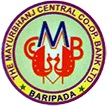With the introduction of online modes of payment, and increased technical usage among the users, transferring funds from one bank account to another has become almost like a piece of cake. Our customers can choose any one of the various modes of payment depending upon the amount to be transferred, the time duration in which it should be credited to the receiver’s bank account, etc. NEFT and RTGS are two of the many methods of fund transfer available to our customers.
Regulated by the Reserve Bank of India, NEFT or National Electronic Funds Transfer is an electronic method of transferring money online. Most Indian banks provide the NEFT feature on internet banking and mobile banking. Money transfer made through NEFT does not require any additional transaction costs. Transactions made through NEFT are processed in separate batches. The RBI has specified a cut-off within which these transactions are settled.
RTGS stands for Real-time Gross Settlement, meaning that through this method, the money is transferred from one bank account to the other in real-time, without any delay. RTGS works out as the best payment method if you need to transfer an amount equal to or more than Rs. 2 lakh in real time. RTGS does not follow any specific processing method unlike NEFT; hence, the funds are settled in real-time, without any delay. Through RTGS, each transaction gets processed with every instruction, which makes the money transfer process easier and faster.
About Mayurbhanj Central Co-operative Bank

Mayurbhanj Central Cooperative Bank came in to existence with its founder President HH Maharaja Sir Shri PRATAP CHANDRA BHANJ DEO and got registered under Orissa Cooperative Societies Act on 31.01.1951 with Regd. No 28MB. The Bank started its functioning from 25.07.1951 with Sri Lambodar Dandpat, ARCS, as its President (Ex-Officio) and Sri Bhagirathi Nanda as its first Secretary having its head quarter at Baripada. The district has a total population of 2,513,895…



